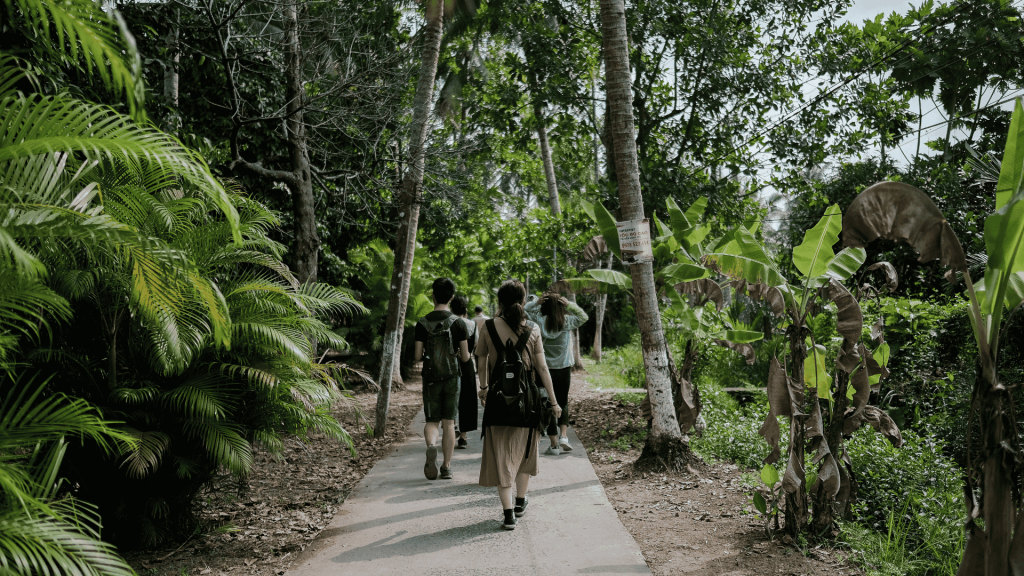Eco-tourism has shifted from a niche trend to a powerful force reshaping the global travel economy. As more travelers seek meaningful, environmentally conscious experiences, the demand for accommodations that reflect these values has surged. This transformation isn’t limited to backpackers or nature enthusiasts; it now includes professionals, families, and digital nomads in search of low-impact escapes that offer both comfort and a deeper connection to nature.
This moment presents a rare opportunity for entrepreneurs with a vision for sustainability and innovation. Rustic lodging—especially handcrafted park model cabins—offers a compelling foundation for building ventures that serve both people and the planet. Compact, resource-efficient, and visually compelling, these structures are redefining what hospitality looks like in natural settings.
From scenic campgrounds in the Midwest to luxury wellness retreats tucked into forested hillsides, these cabins are enabling a new generation of green business models rooted in simplicity and ecological awareness.

Why Eco-Tourism Is Big Business
Eco-tourism has emerged as one of the most resilient and rapidly growing sectors in the global travel industry. According to the Global EcoTourism Network, the market continues to expand as travelers place greater importance on sustainability, biodiversity, and responsible experiences. Destinations that were once overlooked are now thriving because of their environmental integrity rather than traditional luxury infrastructure. This shift is not only reshaping traveler preferences but also changing how businesses approach hospitality.
Conscious consumers expect their accommodations to reflect their values—carbon-neutral stays, renewable energy, locally sourced materials, and minimal land disruption. For investors and entrepreneurs, these expectations open a path to innovation. Launching a hospitality business grounded in sustainability is no longer a fringe idea; it’s a viable opportunity backed by global momentum.
Eco-tourism’s growth also intersects with broader business priorities such as ESG performance, long-term resource planning, and community engagement. It enables businesses to contribute to preservation and stewardship while operating profitably, offering an ethical and strategic model.
Park Model Cabins: A Smart Lodging Solution
Among the most practical and visually appealing options for sustainable hospitality are park model cabins. These compact, handcrafted structures combine rustic charm with high efficiency, making them ideal for eco-conscious ventures. Unlike traditional cabins or mobile homes, they are designed to be transportable yet feel permanent, offering a distinctive guest experience rooted in comfort and simplicity.
Their modest footprint reduces land disruption, limits infrastructure requirements, and accelerates development timelines. Many models are built using natural materials and can be adapted for off-grid living with solar power, rainwater systems, and composting toilets—features that align with the expectations of modern eco-travelers.
Park model cabins are increasingly favored by hospitality operators who want to offer nature-integrated accommodations without compromising quality. Whether placed at the edge of a forest preserve or overlooking a quiet lake, these cabins provide a refined way to immerse guests in nature while demonstrating a genuine commitment to sustainability.
Case Studies & Use Cases
In regions such as New Zealand, eco-lodges constructed from reclaimed timber have become central to local conservation. In Colorado, cabin-style retreats have revitalized regional tourism by attracting travelers seeking low-impact, restorative stays. These examples highlight how thoughtful design and simple structures can support both ecological goals and economic resilience.
Global market trends reinforce this shift. According to a report from Allied Market Research, the eco-tourism industry generated $181.1 billion in 2019 and is projected to reach $333.8 billion by 2027, growing at a CAGR of 14.3%. The report points to rising demand for lodging that reflects local heritage and prioritizes environmental stewardship over conventional luxury.
These trends create fertile ground for models centered on park model cabins. Their efficiency, versatility, and visual harmony with nature make them an ideal choice for entrepreneurs eager to meet shifting traveler expectations while minimizing ecological impact.
Designing for the Future: Rustic Meets Smart
As sustainable architecture evolves, “smart” no longer refers only to digital integration. Increasingly, it speaks to how well a structure supports longevity, resource efficiency, and environmental alignment. Park model cabins embody this mindset. Their compact size and materials naturally lend themselves to passive heating and cooling, and they can be designed to operate off-grid through solar arrays and water-saving systems.
These structures also engage the senses. Wood-paneled interiors, natural light, and unobstructed views create a setting that encourages presence and reflection. For travelers drawn to wellness and eco-conscious living, this kind of lodging offers more than a place to stay—it delivers a meaningful experience.
The flexibility of these cabins also supports responsible land use. Because they can be relocated or repositioned as needed, they avoid disturbing sensitive areas and adapt well to seasonal or long-term shifts in demand. When thoughtfully designed, rustic doesn’t mean outdated; it becomes an intentional aesthetic rooted in resilience, beauty, and purpose.
How to Launch Your Eco-Cabin Business
Starting a hospitality venture grounded in sustainability begins with location. Natural environments with limited development—lakesides, wooded areas, or nature preserves—often provide the most compelling settings. These spaces attract guests while minimizing the need for invasive construction. Zoning, access, and environmental conditions will shape early-stage planning, but many operators begin with just a few cabins and grow incrementally.
This small-scale approach allows for more deliberate development and stronger relationships with surrounding communities. It also keeps costs manageable while offering room to test seasonal dynamics and guest preferences. Features like reclaimed materials, energy-efficient utilities, and locally inspired interiors further reinforce environmental alignment.
Storytelling plays a central role in attracting the right audience. Eco-conscious travelers seek transparency and authenticity, often booking through platforms that emphasize sustainability. Clear messaging around conservation, place-based culture, and design intent helps create long-term loyalty and word-of-mouth reach.
To build a lasting venture, it’s worth applying broader principles of sustainable business development. These include responsible sourcing, circular systems, and a commitment to leaving the environment better than it was found.
Conclusion: A Win for Business and the Planet
The future of travel is being shaped by those who treat sustainability not as an add-on, but as a foundation. Park model cabins offer a way to deliver immersive, nature-based experiences without the environmental burden of large-scale development. For entrepreneurs, they represent more than just a functional solution—they’re a platform for purposeful business.
By combining ecological sensitivity with thoughtful hospitality, these small-footprint structures are enabling a new generation of ventures to thrive in step with the environment. In a world increasingly defined by its limits, simplicity and intention may be among the most valuable assets a business can offer.

Founder Dinis Guarda
IntelligentHQ Your New Business Network.
IntelligentHQ is a Business network and an expert source for finance, capital markets and intelligence for thousands of global business professionals, startups, and companies.
We exist at the point of intersection between technology, social media, finance and innovation.
IntelligentHQ leverages innovation and scale of social digital technology, analytics, news, and distribution to create an unparalleled, full digital medium and social business networks spectrum.
IntelligentHQ is working hard, to become a trusted, and indispensable source of business news and analytics, within financial services and its associated supply chains and ecosystems











